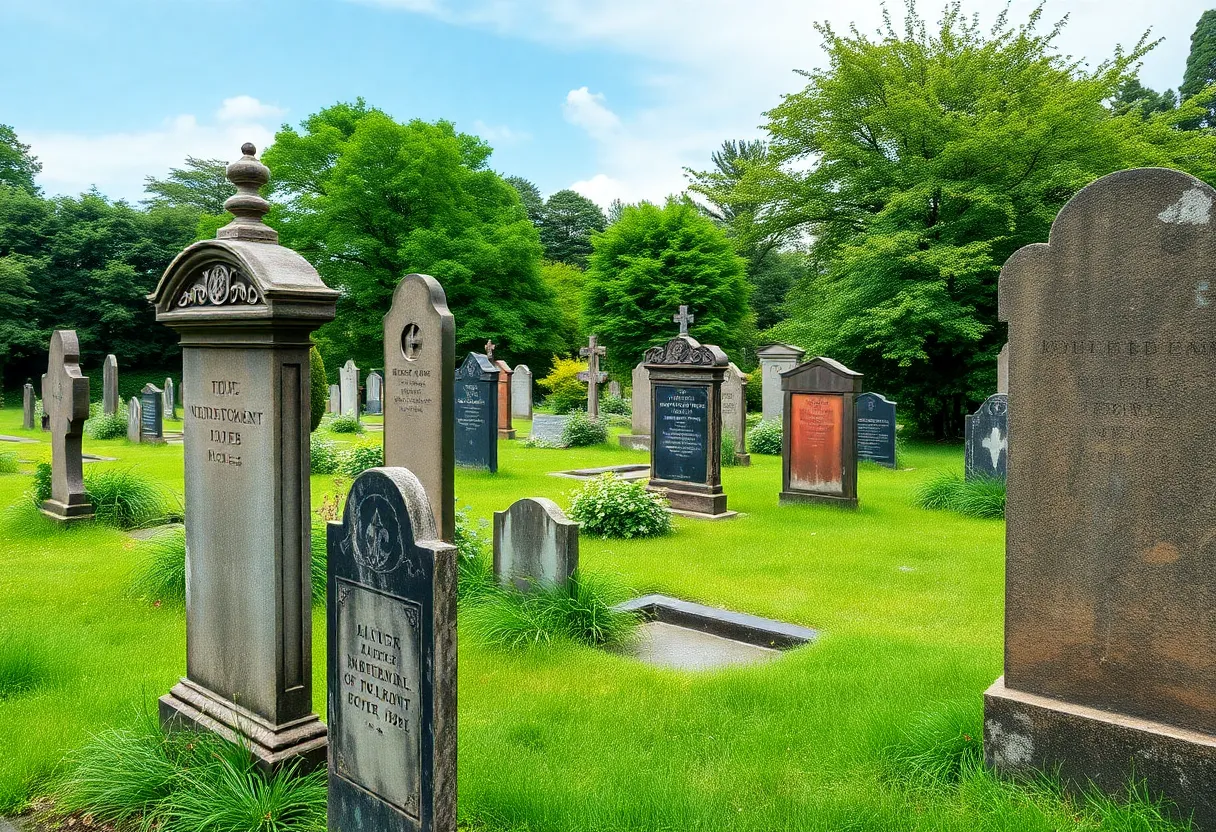News Summary
The preservation of the Roseville Plantation Slave and Freeman Cemetery is underway, involving collaboration from descendants and current landowners. Established in 1771, this historic site serves as a significant reminder of South Carolina’s past, as efforts continue to honor and maintain its legacy. The committee aims to promote education and awareness about the cemetery’s history, making it a focal point for understanding regional narratives related to slavery.
Florence, South Carolina – The preservation of the historic Roseville Plantation Slave and Freeman Cemetery, one of South Carolina’s oldest and largest slave cemeteries, is currently underway. Established in 1771, the cemetery has a rich history spanning over 200 years, serving as the final resting place for an estimated 250 individuals between the 1770s and the 1970s.
The cemetery, located approximately a mile from the main Roseville Plantation house off Old Williston Road, was previously farmland for cotton and was worked by more than 100 enslaved individuals. Currently, a committee composed of descendants of slaves and freedmen, current landowners, and a genealogist is diligently collaborating to maintain and preserve this significant site. The land itself is owned by Francis Marion University (FMU).
The preservation committee includes notable members such as Britt Tucker, a co-owner with deep connections to the property, who emphasizes the importance of keeping the cemetery’s legacy alive. The president of the cemetery’s preservation group, Rick Wilson, has plans to partner with nearby churches and organizations in order to honor those buried in the cemetery. The vice president of the Roseville Cemetery Committee, Vivian Guyton, recognizes the cemetery’s historical importance as a means to promote societal understanding and improvement.
The cemetery’s historical significance has been recognized on a state level as well. In 2004, the South Carolina Department of Archives and History awarded a historical marker to the site. Furthermore, the Roseville Plantation, which originally encompassed 1,200 acres, was added to the National Register of Historic Places in 1997, affirming its historical and cultural value.
A notable figure interred at the cemetery includes “Old Father Adam” Brockington, who lived to the age of 98 before passing in 1854. In 2021, a gathering commemorating the 250th anniversary of the cemetery drew a crowd comprising descendants of both former owners and enslaved individuals, highlighting the cemetery’s role in connecting families to their ancestry.
The collaborative efforts to preserve the Roseville Plantation Slave and Freeman Cemetery not only honor those buried there but also promote education and awareness regarding the region’s complicated history with slavery. Such initiatives reflect a broader trend of recognizing historically marginalized narratives and ensuring they are accurately recorded and remembered.
This collaborative preservation effort is a developing story that mirrors ongoing conversations about heritage, memory, and the importance of addressing and understanding historical injustices. The work of the committee and interested groups continues to shape the future of the site, ensuring that the sacrifices and lives of those buried at the Roseville Plantation are neither forgotten nor overlooked.
Deeper Dive: News & Info About This Topic
HERE Resources
Florence Golf Pro Stephen Behr Sr. Announces Retirement
Community Outcry in Florence Over Damaged Historical Marker
Florence City Council Implements Cemetery Development Moratorium
Additional Resources
- WPDE: Historic Roseville Plantation Cemetery Preservation
- Wikipedia: Florence, South Carolina
- WBTW: Francis Marion University and Florence Slave Cemetery
- Google Search: Florence Slave Cemetery
- WAFF: Save Sweetwater – Forgotten Slave Cemetery
- Encyclopedia Britannica: Francis Marion
- Post and Courier: Rivoli Plantation Slave Graves Lawsuit
- Google News: Rivoli Plantation Slave Graves
- The State: Preserving Florence’s Cemetery
- Google Scholar: Florence South Carolina History
Author: STAFF HERE FLORENCE WRITER
The FLORENCE STAFF WRITER represents the experienced team at HEREFlorence.com, your go-to source for actionable local news and information in Florence, Florence County, and beyond. Specializing in "news you can use," we cover essential topics like product reviews for personal and business needs, local business directories, politics, real estate trends, neighborhood insights, and state news affecting the area—with deep expertise drawn from years of dedicated reporting and strong community input, including local press releases and business updates. We deliver top reporting on high-value events such as the Florence Festival of Lights, Pee Dee Pride, and agricultural expos at the Florence Center. Our coverage extends to key organizations like the Florence Regional Chamber of Commerce and the Pee Dee Area Council of Governments, plus leading businesses in healthcare and retail that power the local economy such as McLeod Health and Pee Dee Electric Cooperative. As part of the broader HERE network, including HERECharleston.com, HEREColumbia.com, HEREGreenville.com, and HEREHiltonHead.com, we provide comprehensive, credible insights into South Carolina's dynamic landscape.





